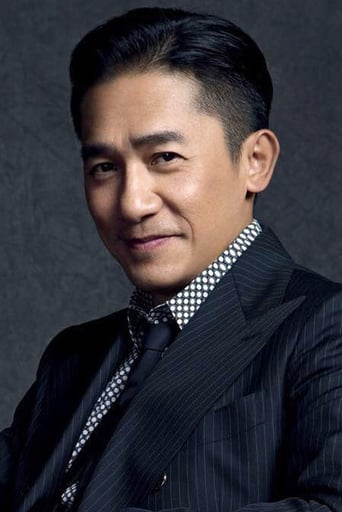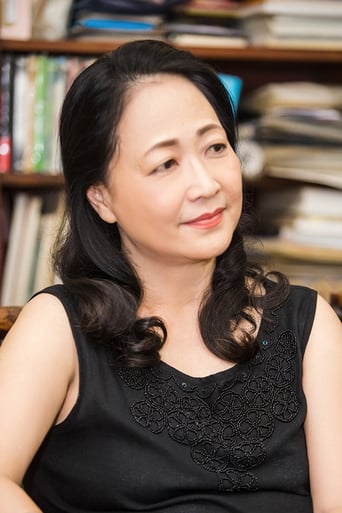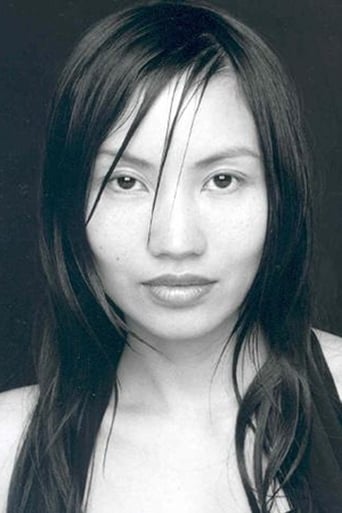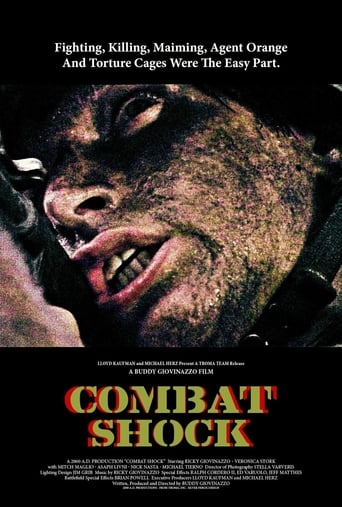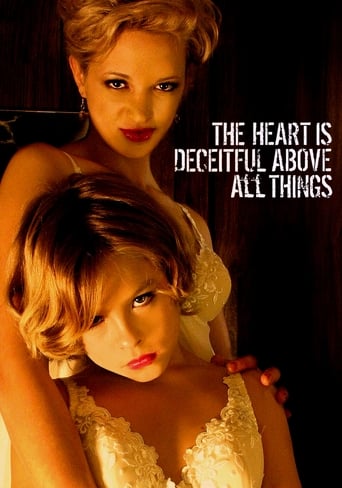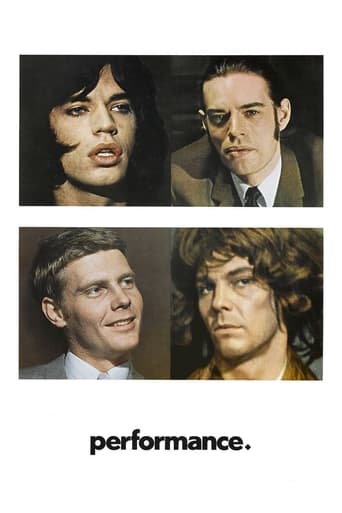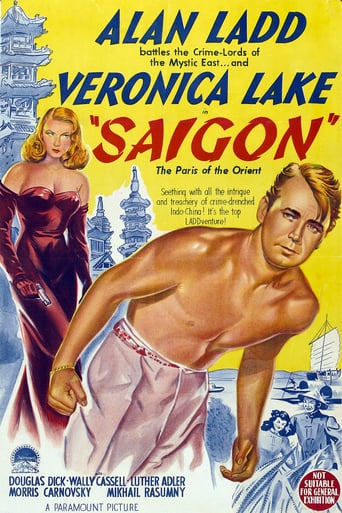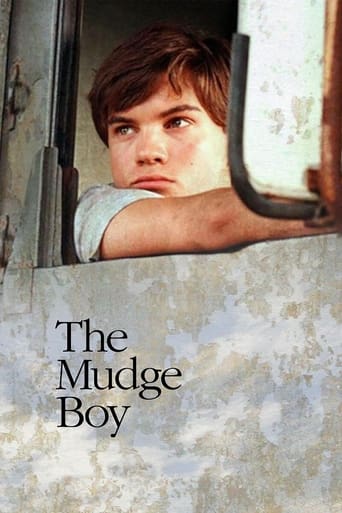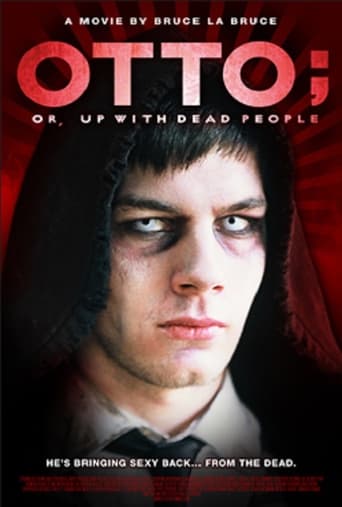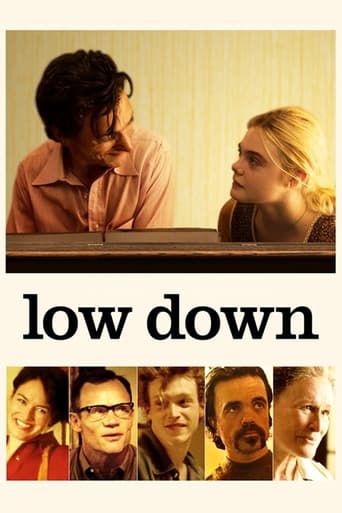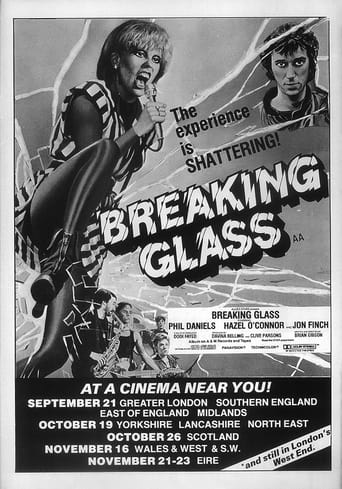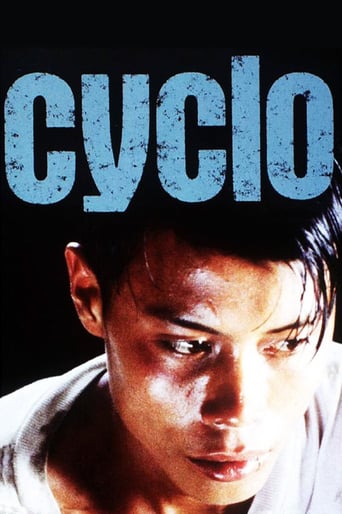
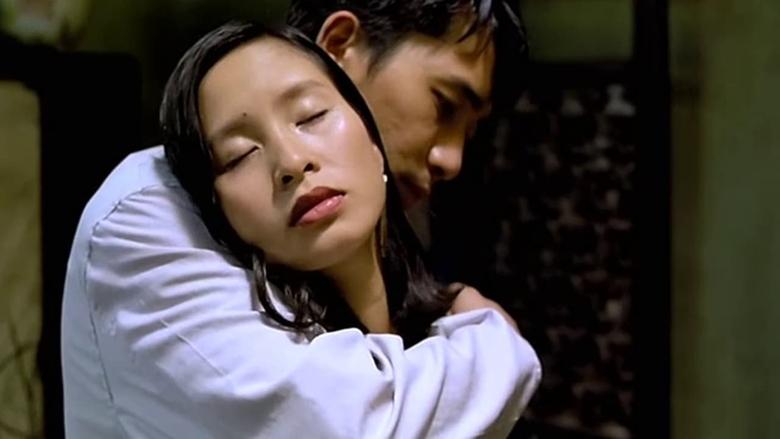
Cyclo (1996)
Follows a young cyclo (bicycle cab) driver on his poverty-driven descent into criminality in modern-day Ho Chi Minh City. The boy's struggles to scratch out a living for his two sisters and grandfather in the mean streets of the city lead to petty crime on behalf of a mysterious Madame from whom he rents his cyclo.
Watch Trailer
Cast


Similar titles
Reviews
I like movies that are aware of what they are selling... without [any] greater aspirations than to make people laugh and that's it.
It's not great by any means, but it's a pretty good movie that didn't leave me filled with regret for investing time in it.
Great movie! If you want to be entertained and have a few good laughs, see this movie. The music is also very good,
Blistering performances.
The setup sounds a bit like The Bicycle Thieves, with a poor Saigon teenager getting his rented bicycle-taxi stolen by a group of gangsters. I was pretty sure this was going to be a film of the "sucks-to-be-poor" genre so common throughout foreign cinema, but Cyclo veers into much darker territory. The teen is forced into crime by the woman from whom he rented the bike, and falls in with a gang she operates (lead by Chinese actor Tony Leung Chiu Wai, the most familiar actor in the cast). Meanwhile, the teen's sister gets involved with Tony Leung, as well, becoming his girlfriend, as well as his prostitute. The film plays this all as a nightmare, which it doesn't spell out all at once. The shift in tone from neorealist to abstract is at first difficult to perceive. Much like its characters' dilemma, the film sneaks up on the viewer and catches you from behind. You never know what's hitting you. The hypnotic mood engrossed me completely. The film reminds me a lot of the work of Tsai Ming-Liang, one of my favorite modern directors. This vision is actually more horrifying than any of Tsai's films. Where Tsai stresses loneliness in the big city, Tran makes Saigon feel overcrowded and the mood is akin to paranoia.
First of all I was blown away by the strong visual quality of Cyclo. Directed by the talented Ahn-Hung Tran, a Vietnamese/French director. This is his second film after the critically acclaimed `Scent of a Green Papaya'. The film looks and feels like a visual poem, and you can't do anything but be awestricken by the sheer intensity and power of the images and their composition that are expressed towards you. Even if their exact meaning isn't always clear to us.In visual terms I would say that the director borrows more from photographers and video artists than other films. What emerges from this is a bold and powerful film. But unlike his fellow film director such as Wong Kar-Wai (In the Mood for Love, Fallen Angels), whose films can sometimes give you the same feel as leafing through a hip photo magazine. Tran's film is more collected, even though it can be made a point out of the plot at times being a bit sketchy.The story circles around a young cyclo (played by Le Van Loc), a bicycle taxi driver (pedicab), his older sister and her lover / ex-lover the local hoodlum, know as the poet ( played by Hong Kong star Tony Leung). We don't learn any of their real names; even the film credits them as the cyclo, the sister, the poet, the grandfather, the madam etc. The cyclo has lost both his parents and is currently living with his siblings and his grandfather. The film gives us a unique view of the contrasts and the poverty of Saigon. Everyone in this household has to work, in order to make ends meet. The cyclo drives his pedicab looking for passengers. His younger sister shines shoes after school. The beautiful older sister cooks and carries water from the marked, and even the old grandfather repairs tyres. The chain of events starts rolling when the cyclo gets jumped by rivals who steal his pedicab and beat him up. The cyclo who was employed by the local gang boss, the madam, is now forced into taking up petty crimes, under her sponsorship to pay for his cab. But instead of returning to a normal life, he is pressured by the madam's gang led by the silent gangster the poet, to commit even more violent crimes, on madams behalf.The poet however, is at the same time living a second life as a pimp, under which guise he recruits the cyclos elder sister (presumably because she and her family need the money). There is also a clear indication that she and the poet are either lovers or have been so.But trying to follow or find the plot of the film is missing the whole point of this film. Events occur suddenly for no direct reason, while other times, events don't occur as you as a viewer expect them to. The film follows a dynamic structure reflecting the human spontaneity. Events are sometimes difficult to make out, because the director clearly doesn't believe in feeding us information with a spoon. It's liberating to watch a film that isn't afraid of its audience, and deliberately has a storytelling that leaves much up to our imagination and interpretation of event. There is such room for speculation, because Tran leaves a whole continent of emotions and information unexposed.Let me just point out that this is not a bad thing in anyway. We are raised upon a tradition of films that force-feed us their purpose. Formula based clichés where you know where the film is going and what's going to happen after watching 10 min of it. What Ahn-Hung Tran does is both daring and plausible: breaking new ground and expanding our horizons.As I mentioned, that trying to follow the plot is to miss the point of this film. It reminds me of French new wave aesthetics and the work by John Cassavetes. While most films and their characters are more about doing instead of being, this film does the direct opposite. It seems like the story is serving the purpose of exposing a distinct character emotions, instead of the western plot driven stories, where characters serve as devices to push the plot forward. Tran has a great eye for visual composition and picking out details he want to show. The films story could easily have turned into something uninteresting and shallow. But the attention the right detail along with the decision to show consequences of situations instead of action and confrontation makes this a unique insight of human nature.The main characters are all mostly silent throughout the film. This strengthens the feeling of them being almost passive accepting of the choices pressed upon them. Because the cyclo, his sister and the poet are all in one way or another force to do what they're doing, either by each other or by their environment. With this minimal amount of dialog, the majority of the scenes are more dependant of the characters actions or more: their reactions. Their expressions and body language conveys their desires and torments, without ever becoming sentimental.Ahn Hung Tran's storytelling suits the exquisite minimalist approach the cinematographer Benoit Delhomme turns toward the material. The films fixation with fluids is also quite interesting choice. All kind of fluids play a visual and symbolic role throughout the entire film: water, mud, sweat, paint, even urine and blood. Everything ads to the visual flow of the film.Evoking an incredible atmosphere of chaos, helter-skelter activity that seems to follow no law, the strength of cyclo lies in its imagery. Stunning colours and cascade of metaphors, on many different levels, constructs a coherent picture of the world. The main story is regularly intertwined by photomontages from Saigon: everything from the city streets of Saigon, or a montage of all the residents of a particular block, classroom of children singing Vietnamese songs. And a quite surreal funny scene of a helicopter carrier that tips over with its military helicopter, in the middle of heavy street traffic. Everything is connected with a kind of dream logic that's hard to define, where things just fit together even if they logically shouldn't.The film is a beautiful daring triumph, which isn't afraid of its audience. It will make you reflect over it long after you have seen it. And isn't that what all good art should do ?
Sons lose their fathers, and miss their fathers. In Cyclo, the young man, who earns his living and supports his family by driving a rental cyclo (bicycle-taxi), is a child without parents. In Cyclo, the poet is a child that cannot be accepted by his father. In Cyclo, the retarded son of a widow is a symbol that by which the widow connects in spirit with his father, her dead lover. Under the tangle of missing, recollection of, and conflicting with fathers, Cyclo shows sons going through the shadow of fathers to rediscover themselves.Father is a symbol of a family, that, when amplified, becomes a nation. In an article "no longer in a future heaven," the author McClintock mentions an idea: mother represents the history of a nation. However, in Cyclo, father (male) symbolizes the history and means where a son comes from. Leaving Vietnam since childhood, the director Tran is detached from Vietnam¡¦s history. But he still is a Vietnamese, because he comes from his father, a Vietnamese. However, to some degree, he is a child without father the history and memory of the Vietnamese past. To Tran, Vietnam, Ho Chi Minh City, and the people in there seem familiar, but are strange, actually. Maybe this can provide one reason as to why Tran uses the characters to spy on people in the streets of Ho Chi Minh City through the frames of windows or lenses. In some situations, spying means alienation-- an ambiguous mood about being eager for something but afraid to get close.In my view, the women characters in Cyclo have two meanings. First, woman as mother is the one who protects the father's heritage. The widow is an example. She does her best to take care of her son, because in her mind, the son comes from his father and is a reflection of his father, even though he is retarded. The young man's sister, a virgin, represents the sacred image of a nation, which is cannot be invaded. Therefore, when she is assaulted, her man, the poet, rages to kill the attacker.The characters in Cyclo do not have a name. However, this does not stop audiences to recognize them, or furthermore, to identify with them. Through gazing at their lives, behaviors, and psychological reactions, the young man could be you and me, and the poet could be anyone. They represent different types of people. The young man is a lost lamb. He at once identifies another father-image, the poet. But finally, he knows he is wrong. The poet represents contradictions. His present conflicts with the past (father), and his mentality clashes with his behaviors. If this film is allegorical of a collective loss of innocence of a nation, those characters reflect and depict Vietnamese situations from the director's point of view.The end of the film shows the young man carrying his grandfather, elder sister and younger sister with a cyclo in a crowded street of Ho Chi Minh City. Sunshine brightly sprinkles on them, and they look very happy. The ending scene shows that through all the chaos, the young man finally rediscovers and re-builds himself in the present. Separated from the past, a son can still live well. Maybe to the Vietnamese, past is past; what is important is the present and future. To Tran, what is important is self-identified.This is a movie that I strongly recommend.
Xich lo is a highly disturbing movie which manages to combine aspects of many cinematic traditions to make something new. It seems that the director held European cinematic and directorial traditions very high, and that is plainly visible in this movies. But the use of colours that somehow seem to move the soul can only be asian.The humdrum of the city does not let up. The movie depicts a vicious cycle of abuse, extortion and violence. Le cyclo's attempt to get justice after his cyclo has been stolen is futile at first. Angry, he seeks help from le poete. This leads him into a spiral of violence, drugs and insanity. The fact that the actors do not have names, simply lables, such as "le cyclo," "le poete", and "le grand-pere," seem to reinforce the futileness of life in such conditions.There is a strong undercurrent of frustration in this movie. Le poete, pimping out his girlfriend to fetishists whose pleasure does not come from the sexual act. He wants to keep her virtue for himself, but of course, this is folly. And even sadder is the le grand-pere, who is old, and sick, and yet, has to perform back breaking work to get by in life. Given a chance to earn some money, he rejects it, sticking by his principles. But ultimately, this does not get him anywhere.So what is one to do? Being honest doesn't help you get anywhere. Neither does being a gangster. Or a madame. In the end, this is the question that remains unanswered...or to which there is no answer.


